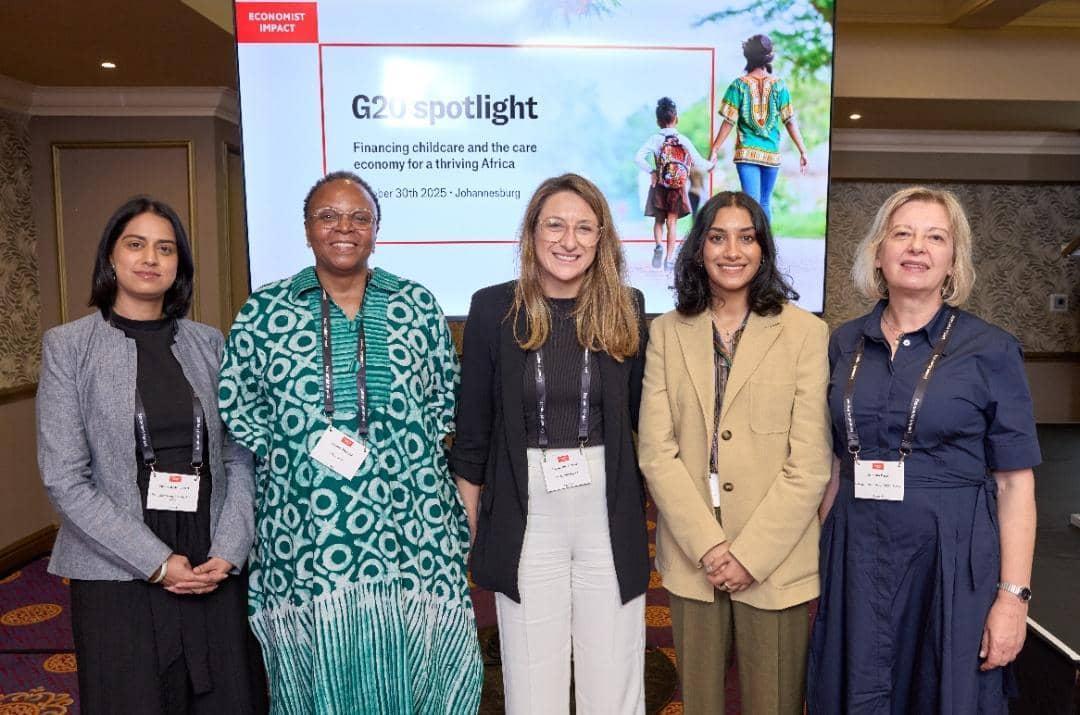Africa-Press – Uganda. A lack of access to affordable, quality childcare cost the economies of South Africa, Kenya, and Nigeria billions of dollars in lost income in 2022, as millions of employable mothers were unable to participate in the workforce.
Research from Economist Impact’s Childcare Dividend Initiative (CDI) reveals that investing in childcare is not merely a social good but an economic necessity.
Across Sub-Saharan Africa, the care economy remains an untapped engine for growth, with the potential to boost employment, productivity, and gender equality.
While countries such as South Africa, Nigeria, and Kenya are strengthening childcare and early education policies, affordability and quality remain major challenges.
“Access to affordable, quality childcare is not a luxury; it’s an economic necessity,” said Katherine Stewart, lead researcher of the CDI at Economist Impact.
She noted that childcare should be viewed not as a cost but as a strategic investment that drives productivity, strengthens economies, and promotes inclusive growth.
The research shows that achieving universal childcare enrollment by 2030 could enable millions of mothers to join the labour force across the three sub-Saharan economies studied.
Nigeria stands to gain the most, with up to 1.7 million mothers potentially entering the workforce—equivalent to a 1.09 percent boost to GDP through higher household incomes and increased tax revenues.
To highlight the transformative potential of the care economy, Economist Impact, supported by the William and Flora Hewlett Foundation, hosted a high-level forum on the sidelines of the G20 Women’s Economic Empowerment Working Group Ministerial Meeting in Johannesburg.
The forum brought together policymakers, funders, care providers, and civil society leaders to explore how strategic investments in childcare can fuel inclusive growth, advance gender equality, and support child development in line with the G20 agenda.
Speakers at the forum cited lessons from Kenya’s national care strategy and emphasized the need for cross-ministerial collaboration among finance, health, education, and social development sectors to build sustainable care systems.
“Childcare can represent a significant financial burden for many families, but expanding affordable, quality care can also be one of the greatest engines for decent job creation,” said Jasmina Papa, social protection specialist at the International Labour Organisation.
“Investing in the care economy is both an economic and social imperative. Care is a public good: we’ve all received it, and at some point, we will all provide it—whether for children, elders, or others in our communities.”
As the G20 Summit draws to a close, experts are calling on governments to integrate the care economy into national development and fiscal frameworks.
Juhi Kasan, project lead for economies of care at the Institute for Economic Justice in South Africa, said gender-responsive budgeting provides a practical way to assess how public spending impacts women and men, but it must go beyond gender tagging.
She emphasized the importance of applying this lens to health and education budgets to make public expenditure more transparent, democratic, and equitable.
Kasan added that prioritizing the care economy is not about using women as instruments of development but about placing wellbeing at the centre—benefiting women, families, communities, and societies as a whole.
Economist Impact’s Childcare Dividend Initiative continues to make the economic case for investing in childcare systems that are affordable, high-quality, and inclusive, underscoring that when strong care systems are in place, economies work better for everyone.
For More News And Analysis About Uganda Follow Africa-Press






